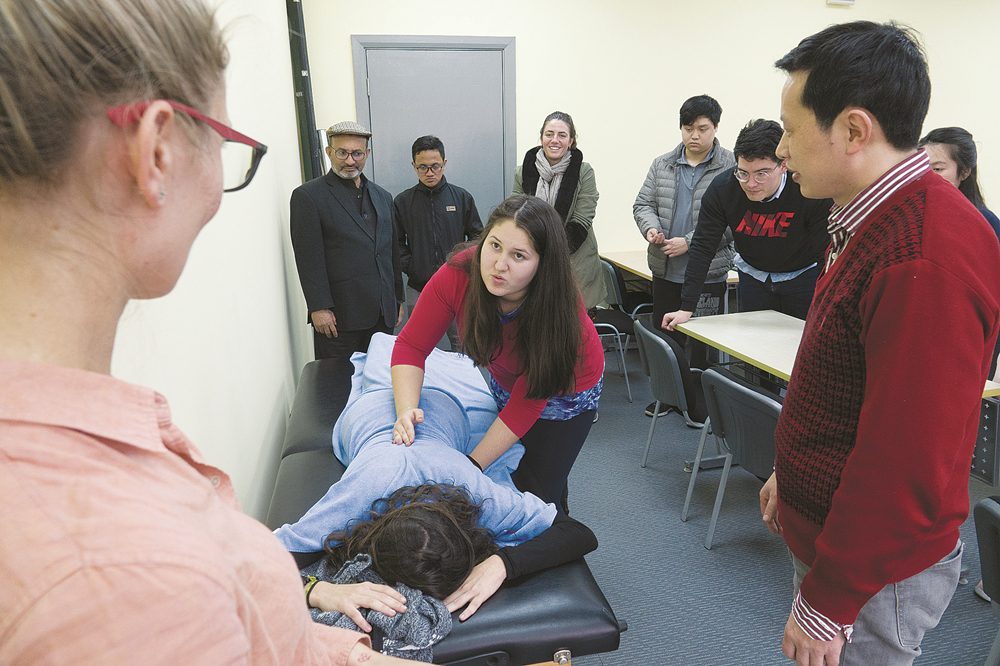This article has been reviewed according to Science X's editorial process and policies. Editors have highlighted the following attributes while ensuring the content's credibility:
fact-checked
trusted source
proofread
Sharing the healing touch

Chinese TCM doctor talks about his passion for promoting tuinatherapy through overseas demonstrations and teaching international students
Over the course of three decades, Li Zhengyu has promoted tuina, a form of Traditional Chinese Medicine (TCM) manipulative therapy, in about 20 countries.
The 59-year-old's most recent destination was Dubai, and he will fly to either Canada or Germany later this year to showcase the effectiveness of the therapy.
"TCM should be the choice of therapy for illnesses all around the world and not just in China," said Li, who works as atuinadoctor at Yueyang Hospital Affiliated to Shanghai University of Traditional Chinese Medicine.
Based on Chinese medical principles that are more than 2,000 years old, tuinainvolves using hands to apply pressure in areas between joints to remove blockages along the meridian points and stimulate qi, or the body's natural energy flow, to promote healing.
This form of TCM therapy can be traced back to ancient China when people used such techniques to treat injuries inflicted by natural disasters and animal attacks. It is often used in conjunction with acupuncture, fire cupping, herbalism, tai chi and qigong.
"This therapy is more convenient than acupuncture which requires disinfected needles and medicinal alcohol, and is safer than Western medicine which may have side-effects," said Li.
"Tuinacan be done using clean hands anytime and anywhere, and this is why an increasing number of foreigners are becoming interested in it. Foreigners who visit Yueyang Hospital have always been amazed at how tuinacould be used to heal different diseases like cervical spondylopathy or frozen shoulders."
Li, who completed his bachelor, master's and doctoral degree in acupuncture and tuinaat Shanghai University of Traditional Chinese Medicine, said that his passion for this field was influenced by his mother who was a professor at the Shanghai Medical College of Fudan University.
While Chinese herbalism and acupuncture were the most popular specializations among medical students in the 1980s, Li decided to pick tuinainstead because he felt it was a new field of medicine that held much promise. His interest in this discipline has since led him around the world.
During one of his trips to Japan in the 1990s, Li administered a five-minute tuinatreatment to a Japanese nurse and immediately relieved her of the pain in the right shoulder. The nurse was so impressed with Li's skills that she visited him in China seven years later. This time around, she requested him to treat her left shoulder.
1 2 Next >>|



















